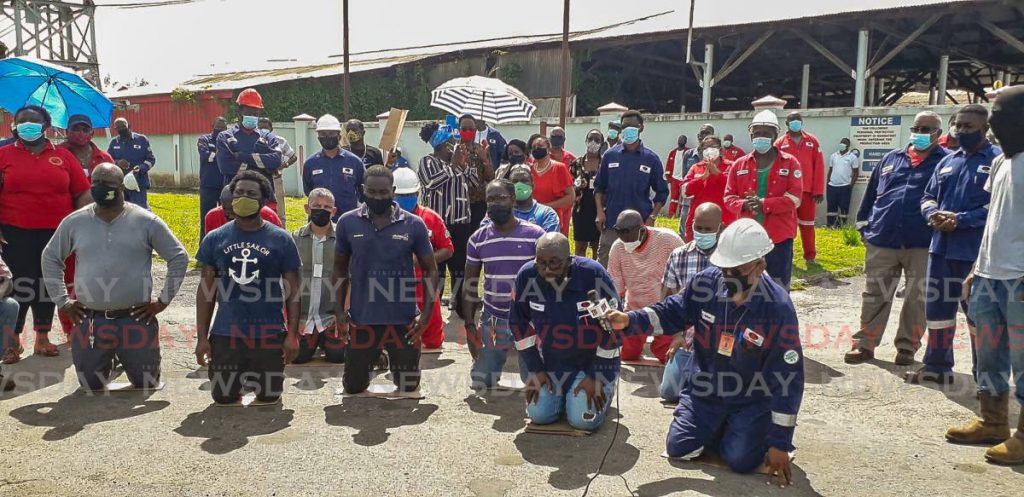Lake Asphalt sea of troubles

In January, Labour Minister Stephen Mc Clashie promised that the government would not be shutting down Lake Asphalt of TT (LATT).
On Tuesday, the government announced a subvention to the keep the foundering company afloat.
Some of the money will pay overdue salaries at the company, which led workers to kneel theatrically outside the company's front gate to plead for salaries that hadn't been paid for more than six weeks.
But dipping into the treasury repeatedly – this is the second subvention for the year – to bail out LATT can't be the only approach to reversing the company's fortunes.
The company appears to offered no plan to date to plug these mortal leaks.
Workers aren't likely to be reassured by employment that depends on the whim of those who hold the strings of the public purse rather than the company's earning power.
They are unlikely to be any more confident after CEO Roger Wiggins' statement that the company is “committed” to finding a solution to settle its debt.
That doesn't sound like a company with a strategic plan to emerge from its current business dilemma.
LATT manages this country's first extractive resource, the Pitch Lake, and it remains surprising that it has not, over the decades, been able to leverage this flow of asphalt into a viable industry beyond its most obvious use in road surfacing.
The Pitch Lake isn't the only naturally occurring tar pit in the world – there are at least a dozen; nor is it the only one located in a place named La Brea. Rancho La Brea in Los Angeles has been mined for asphalt since the 1800s, but is more famous as a source of resurfacing fossils. It is the site of a palaeontological museum exhibit that's currently in the early stages of a major refresh.
Continuous study of this active research site has uncovered bacteria that not only live in the oil and asphalt of the pits, but create enzymes that break down petroleum products.
In contrast, except for a sketchy building and a few underemployed tour guides, the La Brea Pitch Lake has been, for most, a sticky pool on a particularly bumpy stretch of roadway.
To return to more conventional income-generating activities: the report of an inter-ministerial committee on the company's operations remains a Cabinet secret. Why?
The Energy Minister will present unspecified plans for LATT sustainability to Cabinet, but it's unclear what the government can do that it hasn't tried before. Contracts for roads in China, scientific collaborations with UWI – none of it has worked.
It's time to open deliberations and requests for proposals for this resource to private industry, scientists, academia and other potential investors who might be able to do more with our asphalt than successive governments have been able to.


Comments
"Lake Asphalt sea of troubles"